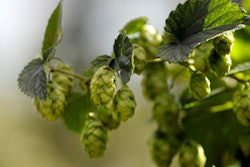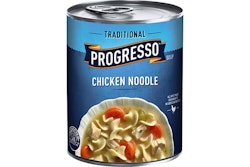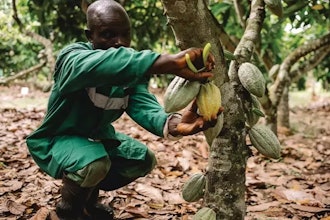Agrichemical companies long argued that genetically modified crops would be necessary to feed a rising global population with a finite amount of farmland around the world.
But the proliferation of GMO crops in North America in recent decades showed little to no impact on certain crop yields compared to Western Europe, where such crops are rare, according to an investigation by The New York Times.
The report, which cited data from the United Nations Food and Agriculture Organization, found little variation in corn production patterns between the U.S. and Western Europe.
European producers, meanwhile, led Canada in yields of rapeseed -- used to make canola oil -- and showed stronger yield growth in sugar beets than their U.S. rivals.
Industry giants, however, disputed the report's conclusions. Monsanto accused the Times of cherry-picking the data, while Bayer officials maintained that current production practices would not be able to keep up with population trends.
“Biotech tools have clearly driven yield increases enormously," Monsanto chief technology officer Robert Fraley told the paper.
GMO crops sparked controversy in the U.S. and abroad largely due to unfounded speculation about their impact on human health. Scientists, however, are more concerned about the potential impact of agricultural pesticides.
Proponents of modified seeds claimed that they would reduce the overall use of pesticides, but the Times analysis did not back that argument up.
Although bug-resistant crop varieties helped curb the use of insecticides, herbicide use increased as companies developed seeds to resist them.
Glyphosate, the active ingredient in Monsanto's Roundup, was classified as a possible carcinogen last year by a global health agency -- a decision the company strongly disputed -- while weeds' growing resistance to conventional herbicides led some farmers to rely on controversial chemicals such as dicamba and 2,4-D.
The Times also noted that farmers are increasingly unable to pick and choose which traits they would like in their seeds -- and that pattern is likely to continue amid a wave of consolidation in the agrichemical industry.
Farmers on both sides of the Atlantic touted the potential benefits of the seed and pesticide systems to their individual operations, but scientists said that the data showed that Western Europe hasn't been penalized for its GMO skepticism.
“I don’t consider this to be the miracle type of technology that we couldn’t live without," German university researcher Matin Qaim told the paper.






















